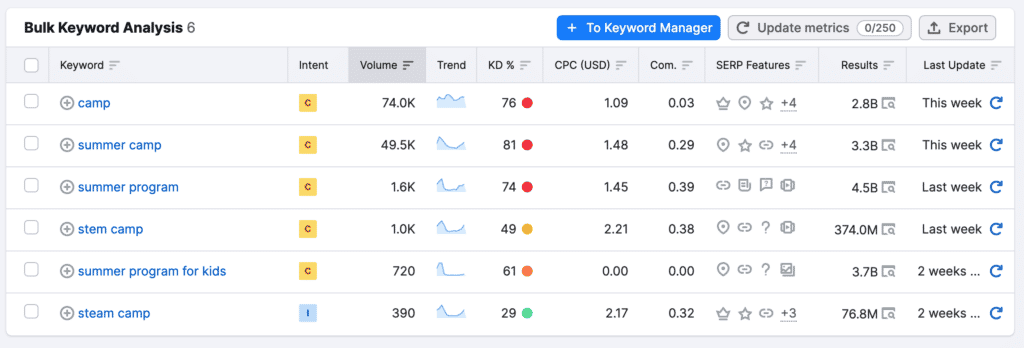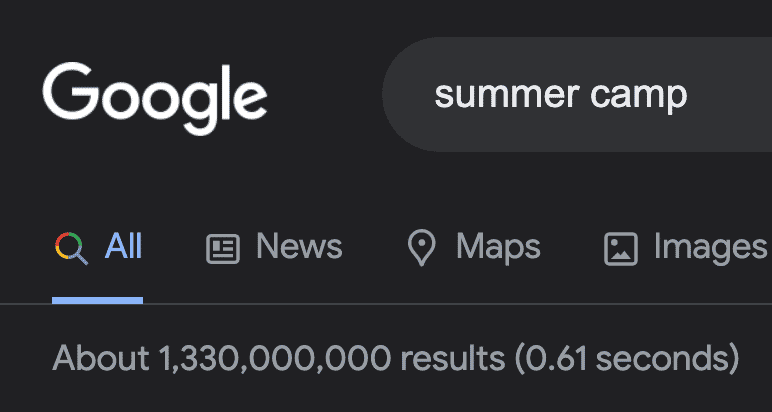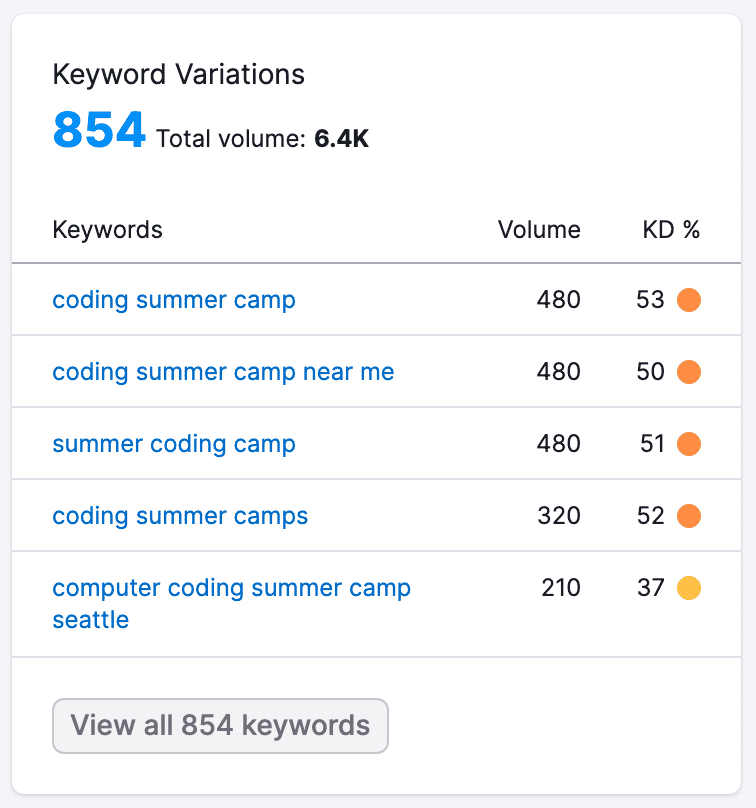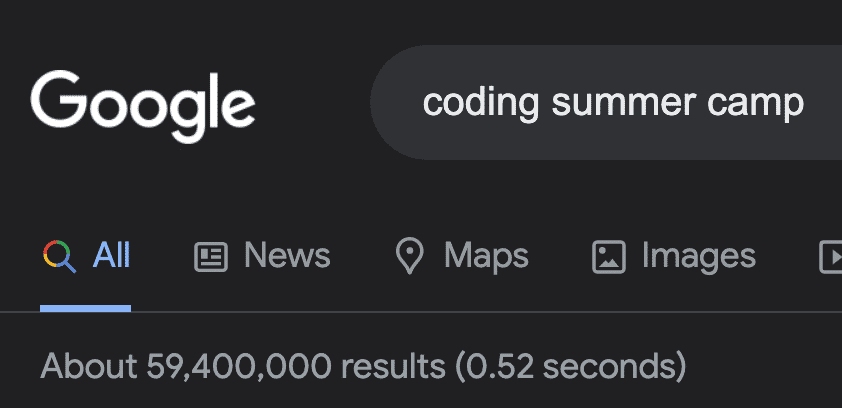You probably heard that you need to “do SEO” for your website but had no idea where to start. This is part one of a five-part series filled with actionable tips that you can implement to optimize your website for search engines:
- Do your keyword research
- Make sure search engines can crawl your website
- Create content that search engines will love
- Build authority so search engines will trust your website
- Implement best practices for your website
Let’s get started with keywords, which are the words people are using to find you on search engines.
Determine Your Primary Keywords
The primary keywords, or “short-tail” keywords, are the ones that will get the most volume on search engines. They are usually short, like 1-3 words. They should also be pretty general. For example, if I’m doing SEO for a STEM summer camp website, they would include things like “camp” and “summer camp.” Because these keywords are high-volume, they are also the most competitive, so it might take some time before your website will rank well with them. That’s Ok! As I mentioned before, SEO is an ongoing process, so you will eventually see improvement with your primary keywords.
To determine your website’s primary keywords, use a spreadsheet to list everything you think customers might use to find a business like yours. Then you can use a tool like Moz or Semrush to see what kind of volume those keywords get. Moz lets you run up to 10 queries per month for free, and Semrush has a free 7-day trial, which should be enough for you to get started. I like how Semrush lets you research multiple keywords at once (even with the free trial), as illustrated in the image below.

You can use the results to determine which keywords have the highest volume, which in the example above reflects the number of searches for that keyword over the past month. Those will be your primary keywords. Using the example above, I would make the following keywords my primary keywords:
- camp
- summer camp
You can also do this research by entering your keywords in Google and seeing how many results come up. For example, when I searched for “summer camp” I got over a billion results. This isn’t as accurate as the volume info you can get from Semrush and other tools, but it will do in a pinch.

Determine Your Long-Tail Keywords and Keyword Variations
Long-tail keywords will be longer and more specific than your primary keywords. For example, if the STEM summer camp I’m trying to optimize offers coding camps, I might use “coding summer camp” as a long-tail keyword. Keyword variations are, as the name implies, variations of your keywords that help extend the reach of the keyword. For example, “coding summer camp near me” would be a great keyword variation for my STEM summer camp website. As you can see in the image below (from Semrush), my summer camp long-tail keywords and keyword variations have a lower volume than the short-tail keywords I selected, which means you should see faster improvement.

As with the short-tail keywords, you can also research your long-tail keywords by searching for them on Google. You should see that you get far fewer results, as demonstrated in the image below.

Take Action: Research Your Keywords
Now that you know a bit more about keywords, I want you to take action and do the research for your website. Use Semrush to research your keywords. You can find instructions for using Semrush to do your research below. After you are done, feel free to share your research on the Get Your Business Online Facebook page.
Need More Help?
Are you feeling overwhelmed? Pongos Interactive can help you with your SEO needs. Contact us to get started.
